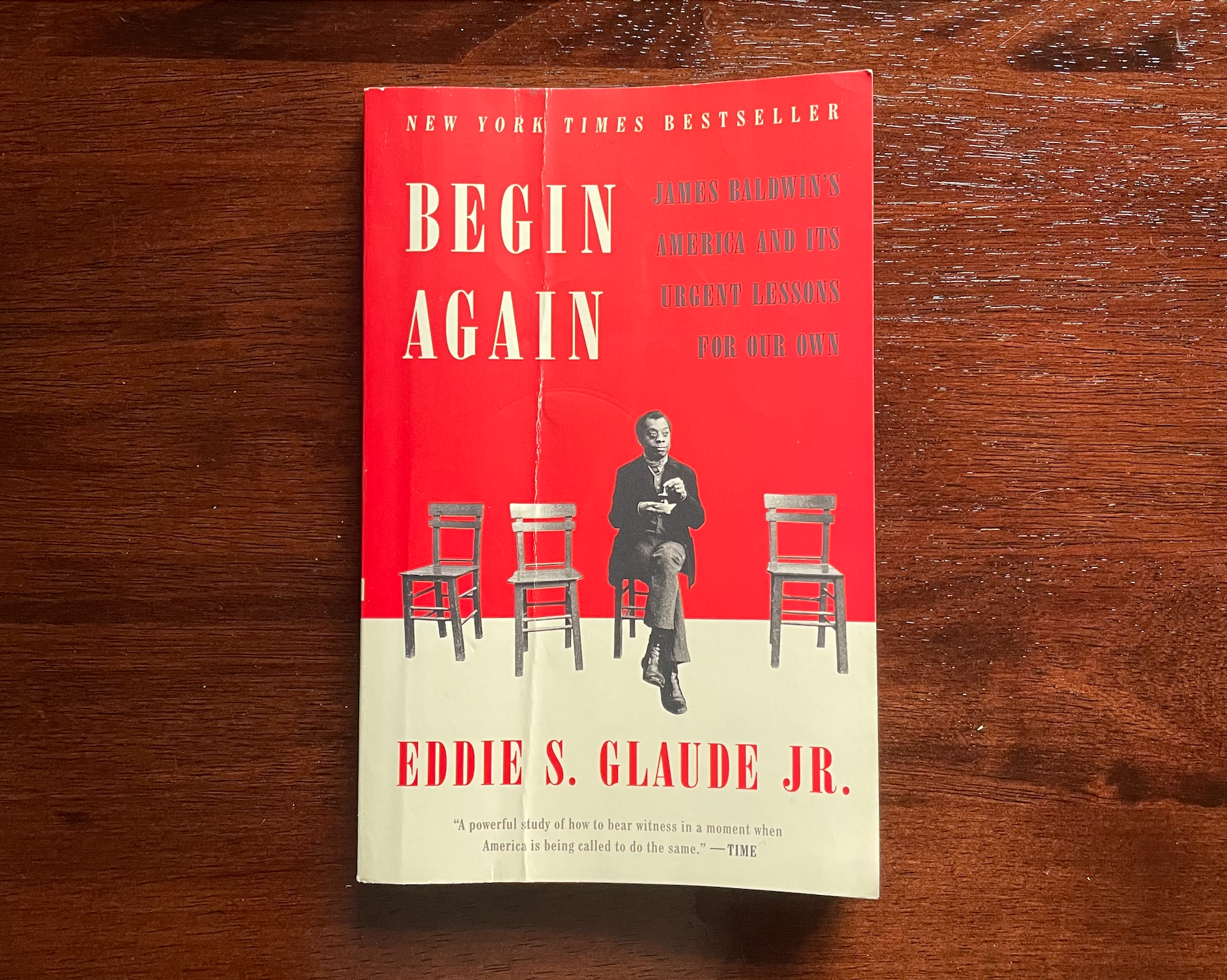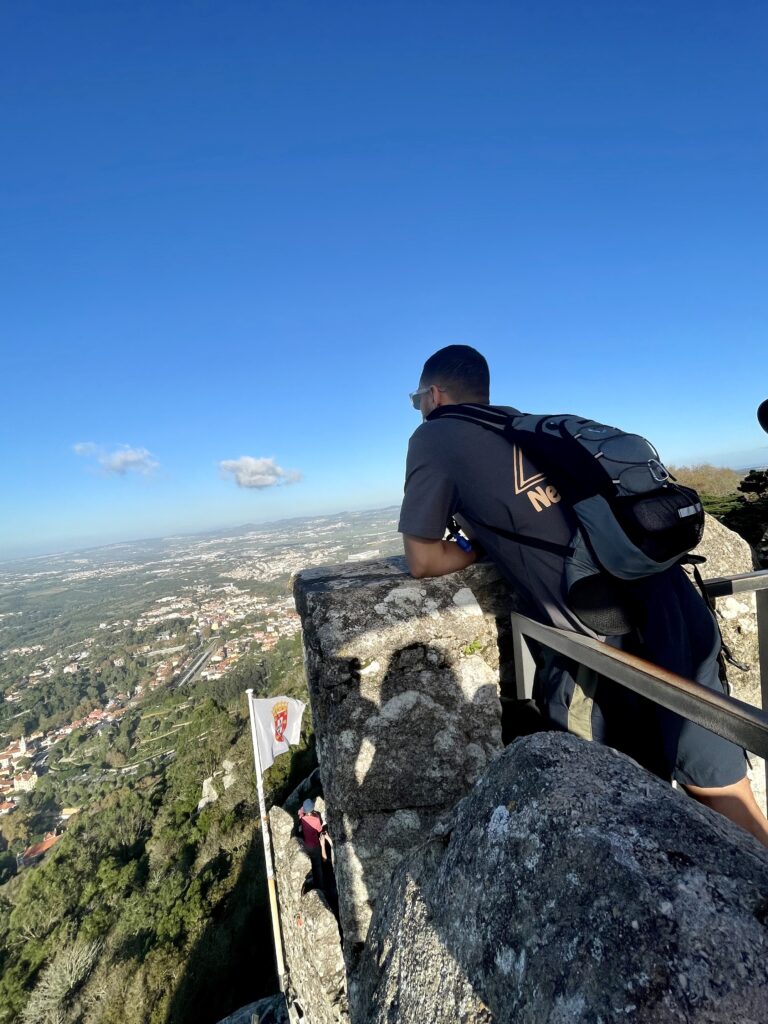I must say: I have never read something in which one person has been able to think and write with—and through—another person in the way that Eddie Glaude Jr. does with James Baldwin. When I first came across Begin Again—while listening to his episode on the Throughline podcast—I knew that Glaude engaged with Baldwin’s work on a deep level; but I failed to realize the extent to which he did so.
What makes Glaude’s work so amazing is that one almost feels as if they’re reading “Jimmy” himself. From Glaude’s prose to the subtle sarcasm he throws in every now and then, and his ability to—eloquently—tell it like it is, Baldwin jumps off the page time and again. Still, it’s far from a mimicking of Baldwin’s style or a regurgitation of his ideas. Rather, it’s, as the introduction is titled, Thinking with Jimmy. Glaude clearly has his own talent, though, and it isn’t difficult to see.
Truth-Telling
The most central theme in the book is this notion of truth-telling. As Glaude puts it, and as we see through his references of Baldwin’s work, of the utmost importance to Baldwin is the necessity for us to tell the truth about our history. Returning to this throughout the book, he says that America is founded on The Lie that all of us keep telling ourselves.
The Lie is a bunch of things: that we are a nation founded on democracy for all, that the progress we have made is indicative of how “good” we are as people, and lastly, that the ugly events which have transpired in this country are a thing of the past. Glaude, like Baldwin, says that we will never have a future in which everyone is truly equal, one in which the color of your skin doesn’t dictate your life chances, if we don’t rid ourselves of this lie. More specifically, he writes, “the story we tell ourselves about what the country is and who we are, shapes the world we make going forward.
“We find security and safety in fantasies of how we are always, no matter what we do and what carnage we leave behind, on the road to a more perfect union”
Begin Again (Glaude, 2020, p. 47)
Glaude admits that this is a very hard thing to do when much of our identity as Americans is founded upon these ugly chapters or events. In other words, if we expose the lie, we are throwing away a piece of who we are, which will undoubtedly cause some level of psychological distress. It’s better, as it were, to just go on with the lie and celebrate the progress that we have made.
Bearing Witness
Related to truth-telling is the idea of bearing witness. Glaude writes that exposing the truth and writing about what was happening in the lives of America’s “bottom” was fundamental to Baldwin’s work. He goes on to state that even for the person who does not consider themselves a creative, it is necessary for all of us to share what is happening; for if we do not, we continue to perpetuate the lie.
One passage is particularly illustrative:
“Tell the story. Make it real for those who refuse to believe that such a thing can happen/has happened/is happening here. Bring the suffering to the attention of those who wallow in willful ignorance. In short, shatter the illustration of innocence at every turn and attack all the shibboleths the country holds sacred”
(Glaude, 2020, p. 53)
I felt motivated reading this: Motivated to write about my experiences and the people who look like me. In truth, I wasn’t sure if I was going to post my review for this book, but this single passage spurred me to do so.

Mapping Baldwin
Something I kept marveling at throughout the book was Glaude’s ability to truly map Baldwin’s work and ideas. For anyone who hasn’t read Baldwin prior to reading this book, you can get a real sense of the shift in Baldwin’s mindset and his position within the (civil rights) movement. Glaude writes how early in “Jimmy’s” career, the focus of his work was communicating the idea that white people need to recognize their true selves outside of the demonization of Black people.
This work was indeed central to Baldwin’s status as an acclaimed writer in the 50’s and early- to mid-60’s. What he wrote during these times was refreshing, as he expressed vehemently that there was no “Negro problem”, but rather a problem with white folks.
Glaude shows us the shift in Baldwin’s writing, though, particularly after the death Medgar Evers, Malcolm X, and Martin Luther King Jr. After these men were killed, Baldwin started to concern himself less with white people because, as he would have it, they didn’t want to change.
He still had hope in America, nonetheless, but he did realize that it would take a revolutionary change in mindset for our country to truly embrace the principles such as freedom and equality. In those days, like we see in No Name in the Street, Baldwin finds himself telling the reality of the situation, of a failed movement, no matter how hard it was for everyone to hear, and for him, to write.
Glaude’s Writing
Glaude is, no doubt, extremely talented. There were more than a few passages in the book that I marveled at and reread five-plus times.
“The trauma guided his eyes (and his pen) to the pain that lurked in the shadows of human experience and the various ways we all try to avoid it”
Begin Again (Glaude, 2020, p. 53)
I, especially, appreciated his ability to set the stage in the last chapter. He writes about his visit to the South a few years before the book was published, and all of the emotions that were stirred in him. You can clearly visualize this 50-year-old man crying in front of a monument of all the people who were lynched in his home county; you can feel his emotions when he drives past Confederate flags along Interstate-10; you see him bearing and grappling with so much when he looks at the slave pens in the museum he visits in Montgomery.
“Love takes off the mask and when experienced deeply, it fortifies the soul and offers a cure for what ails our living together”
Begin Again (Glaude, 2020, p. 142)
Glaude also has knack for subtle metaphor that I have not seen in other writers. One passage in particular sticks out:
“ As the jars of dirt at the museum had made plain, the places we live are often, though not always, landscapes layered with the violence of generations. It is in the soil that nurtures us even when we can’t see it on the surface”
(Glaude, 2020, p. 192)
A Brief Note on Travel
This is not a travel book, and I won’t pretend that it is. Yet, there are quite a few nuggets of travel that are worth mentioning.
Throughout the book, Glaude describes Baldwin’s relationship with Paris and says that “Jimmy” needed to go to Paris to see America anew, to reflect and see who he was outside of a country that constantly told him he wasn’t anything. I think there’s something valuable here, particularly for minortized people in the United States.
Not that we all need to leave the States, but I can’t help but wonder what it would be like for our Black and Brown youth to have the opportunity to “create [themselves] apart from the assumptions of who one is supposed to be in America” (Glaude, 2020, p. 135).
Lastly, “elsewhere”. This was by far my most favorite chapter of the book. Glaude writes about Baldwin’s time in Istanbul and how he used the city as an escape and to find out again who he is: “to do nothing in order to start again” (Glaude, 2020, p. 129). Istanbul offered Baldwin the space, privacy and loneliness that was necessary to do the work he wanted (and needed) to do.
“But between 1968 and 1972, Istanbul helped Baldwin make sense of the collapse of the civil rights movement. From this ancient, complex landscape that balanced Islam and Christianity, he conceived of how he would move forward not only in his creative work but in his work as a witness”
Begin Again (Glaude, 2020, p. 125)
I began to apply this to my own situation: right now, I don’t know, specifically, where my “elsewhere” is, but I know that it exists; and I know that it is necessary for me to get there, wherever it is!
Taking a page from Baldwin’s book (no pun attended) I also know that whenever I arrive, I need to create something new. It’s through this creation, as well as “forced” loneliness, that beautiful work will come about; whether that’s this blog or something else.
I’m confident about that!
Where is your elsewhere, though? What will you do when you finally arrive there? What will you create?
Till Next Time Travel Friends!







